If you are struggling to fall asleep, you may have thought about using lavender aromatherapy. Does lavender oil help with sleep? We’re about to dive into more details about lavender oil, its benefits, and the different products you can use. The good news is that lavender oil is scientifically proven to help with sleep.
Lavender essential oil contains potent chemical components such as linalool, linalyl acetate and camphor, that act as anxiety relievers and sedatives. These components work by affecting the amygdala in the brain, the one responsible for emotions, to reduce agitation, restlessness and aggression. It helps you relax, reduces stress and anxiety, and also improves your sleep quality. Lavender improves sleep onset which means it helps you fall asleep faster and promotes a longer period of sleep.
How does lavender help with sleep?
Lavender essential oil is rapidly absorbed through the skin during massage. Linalool and linalyl acetate could be detected in the blood after the topical application of lavender oil. Therefore, lavender oil can be applied before sleep, and you can get its benefits through inhalation and topical application.
A study published in The Journal of Alternative Medicine and Complementary Medicine was done on college students who reported sleep issues. There were two groups in the study, the first group were inhaling lavender oil during sleep and the second group didn’t, but both groups practised sleep hygiene (sleeping in a quiet, dark, relaxing room, at a comfortable temperature, switching off electronic devices, avoiding large meals and caffeine-containing drinks before bedtime). Practising sleep hygiene improved sleep quality in both groups, but the lavender test group showed more significant results in improved sleep quality and sleep onset (the time it took them to fall asleep) only after practising sleep hygiene and inhaling lavender for 5 nights.

Lavender oil capsules
According to a study, lavender oil capsules were beneficial in improving sleep patterns in people with depression when taken with an antidepressant. Also, the participants in this study showed decreased levels of anxiety, which accelerated sleep onset. Additionally, a systematic review found that inhaling essential oils, including lavender, had great results in people with mild sleep disturbances.
One study about the sleep quality of elderly patients showed that inhaling lavender oil for 7 nights helped improve the quality of their sleep. They experienced longer sleep duration and lavender was reported to be good alternative to sleep medications.
Lavender oil can help promote sleep and relaxation in adults and also babies. Another study found that lavender bath oil helped babies sleep better. Babies when bathed in lavender bath oil, they were more relaxed and their cortisol levels decreased significantly. The infants were found to spend less time crying post-bath and before bedtime and spent more time in deep sleep.
What Is Good Sleep Hygiene?
No, it is not related to the shower you take in the evening. Good sleep hygiene is all about what you do as you prepare yourself for sleep. That includes avoiding screen time at least an hour before going to sleep to let your brain settle, and having an overall relaxing evening routine. It is also important to have a consistent bedtime so your body can become accustomed to it. Ideally, all adults should be getting 7-8 hours of sleep.
If you’re a coffee lover, have your last cup long before you go to bed. Caffeine can take 3-7 hours to stop having an effect on your body. Also, avoiding heavy meals at night is equally important and try to have your last meal early at night. If you really want to improve your sleep quality, make your bedroom a relaxing, dark and cool place where you don’t do any work or watch TV. It helps your brain to relax if you associate your bed with rest only.

How Do You Use Lavender Oil For Sleep?
Now that we’ve established how to help you fall asleep, let’s take a look at how you can add lavender oil to your sleep hygiene routine. There are various different products and ways you can use lavender oil. You can choose what you find most helpful for you, or combine several methods for ultimate results.
1. Use Lavender Roll-On For Your Pulse Points
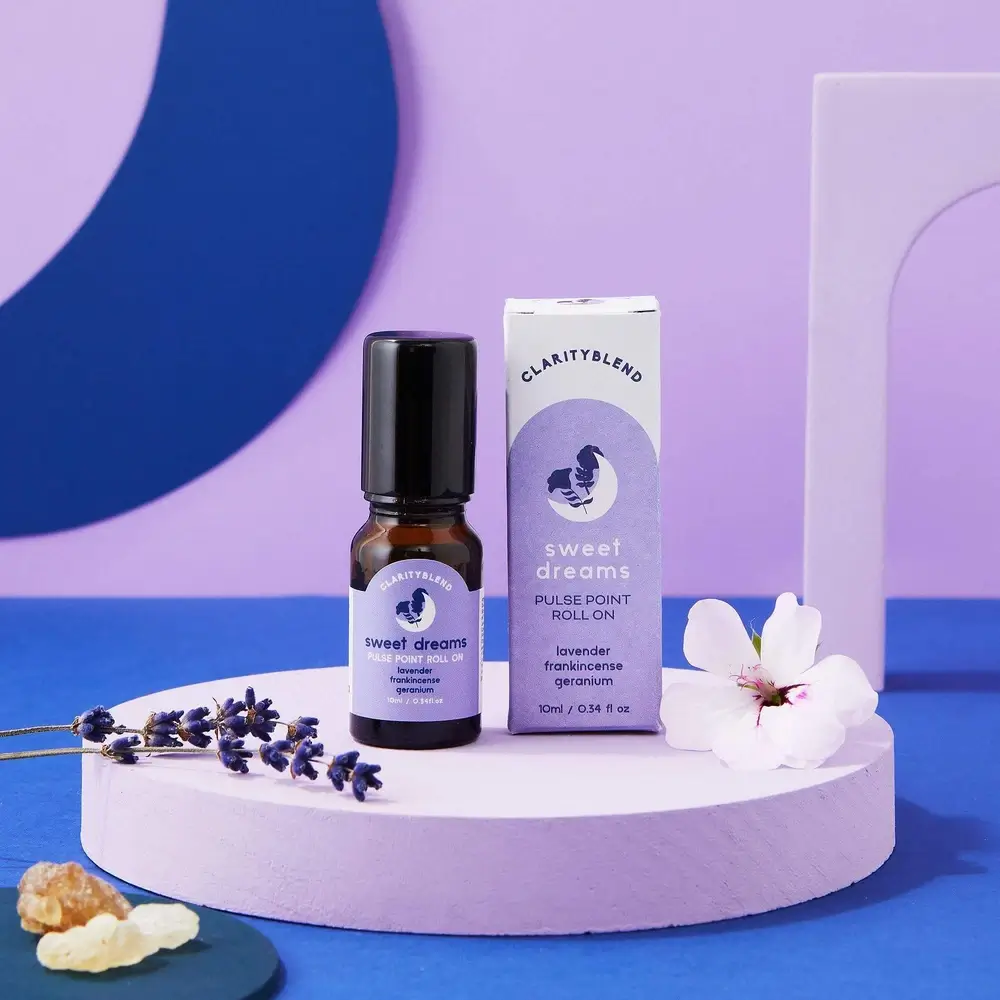
You can apply a Lavender Pulse Point Roll-On during your evening routine. Once it’s applied, perhaps you like to sit and read for a while to relax. You can also apply it as you’re doing your skincare routine. Sweet Dreams Roll-On contains 4 essential oils blended together to promote relaxation and tranquillity: lavender, frankincense, clary sage and geranium.
2. Bath Lavender Oil

If you enjoy having a bath before going to bed, add some Lavender Bath Oil to it. The scent will relax your mind and your body. Just add a few drops to your bath and enjoy! Made with a blend of lavender, frankincense and geranium, it is a perfect combination of natural oils to calm you for sleep.
3. Lavender Bath Salts
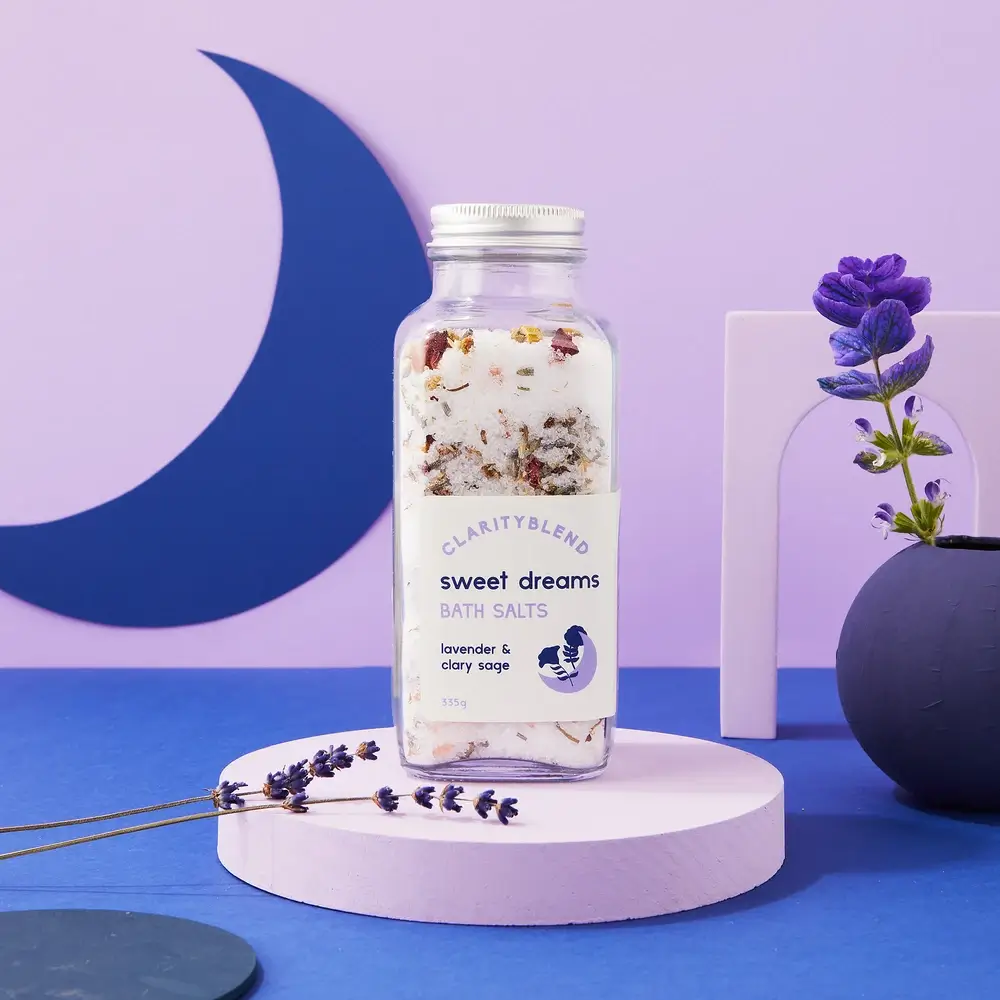
Another great option for bath time lovers is Lavender Bath Salts. Enriched with magnesium, these Epsom salts reduce inflammation and pain, helping to ease your body into sleep. The blend of lavender and clary sage will relax your mind. Made with 100% natural ingredients so you don’t have to worry about any chemicals.
4. Lavender Diffuser Blend
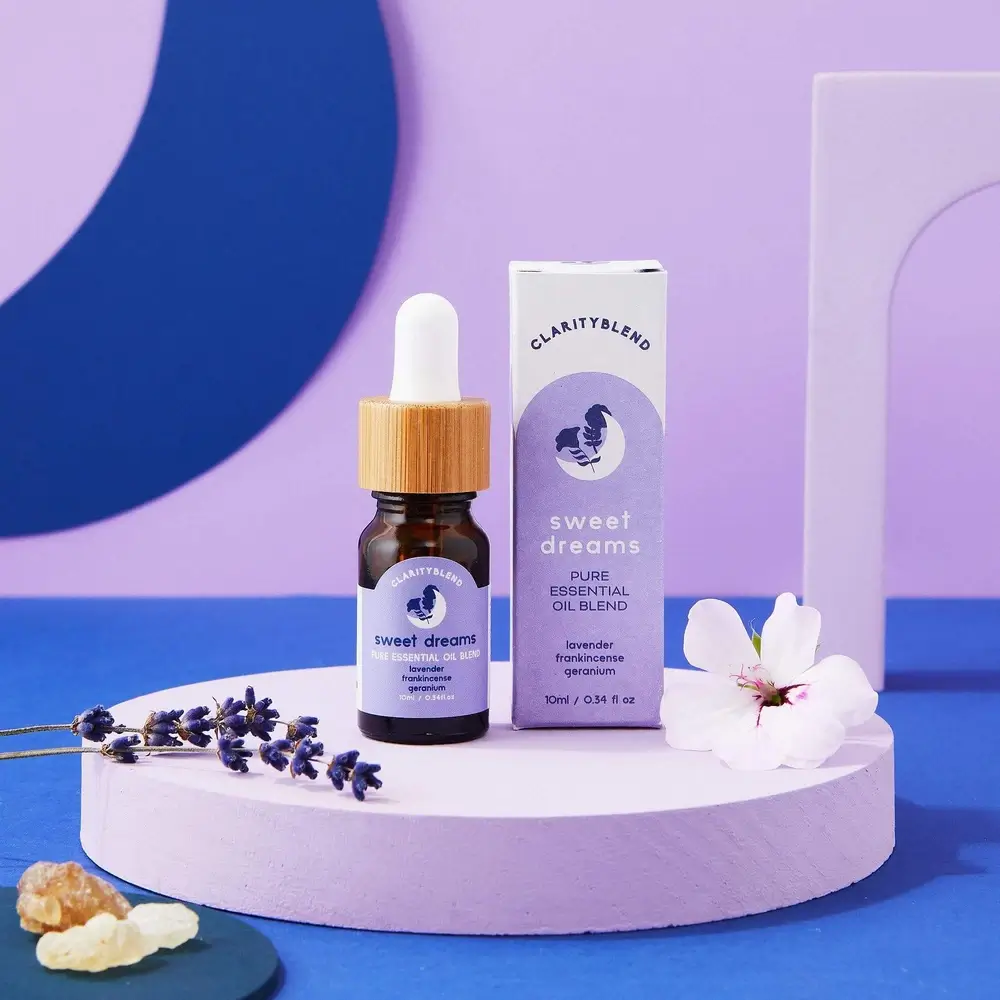
If you prefer to sit and read a book before going to sleep, we’d recommend adding a Lavender Diffuser Blend to your routine. Mix a few drops of this blend with water, sit back, and allow the scent to help you unwind after a long day.
5. Lavender Massage Oil
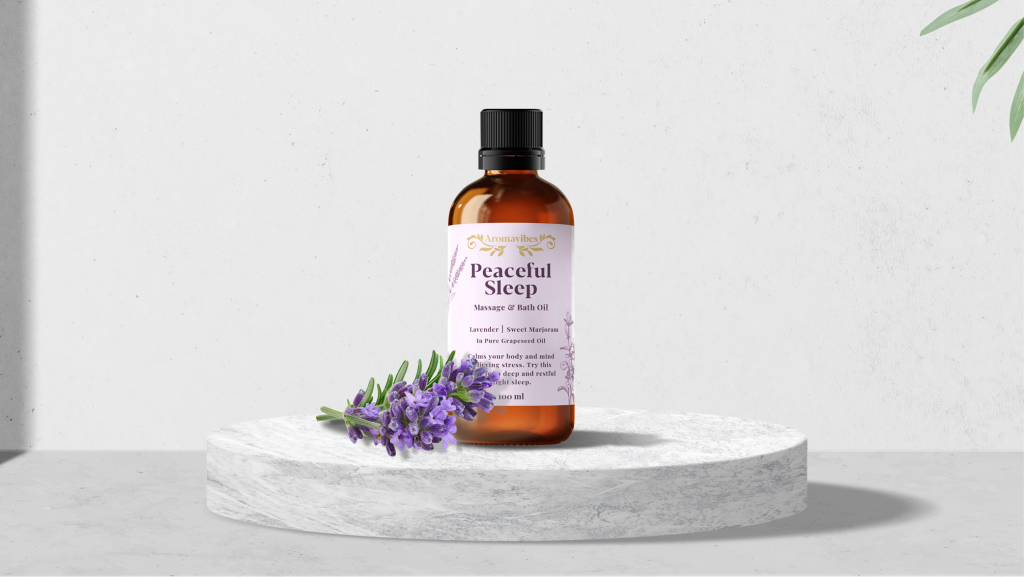

Finally, if you have a partner or someone who is willing to help improve your sleep, a lavender massage oil could do wonders for you. This oil is a perfect mix of lavender and marjoram oils. Marjoram helps to reduce your blood pressure and stress and anxiety making it a perfect addition to lavender oil. Moreover, grapeseed oil will leave your skin feeling soft and moisturised. Check out this blog post about sleep massage oils.
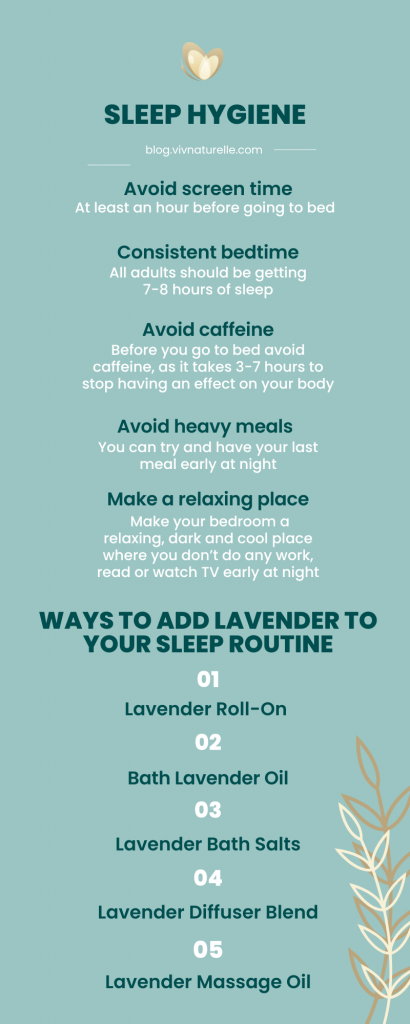
Final Thoughts
Now that we know what good sleep hygiene consists of and how helpful lavender oil is for sleep, all you have to do is to choose your favourite method. If you love baths, you could opt for bath salts or bath oils. If you prefer reading or doing other relaxing activities, you could use a pulse point roll-on or a diffuser blend. With so many options, there is something for everyone!
You should bear in mind that most essential oils should not be applied directly to the skin or to an open wound, because they are so potent and can cause irritation. Before using essential oils, you can do a patch test on your skin to make sure you’re not allergic to them and also dilute them in a carrier oil.
We hope we’ve answered the question of does lavender oil help with sleep. If you have any more questions, let us know in the comments below!
You can read more from Holland & Barrett, Healthline and Jersey Lavender.


